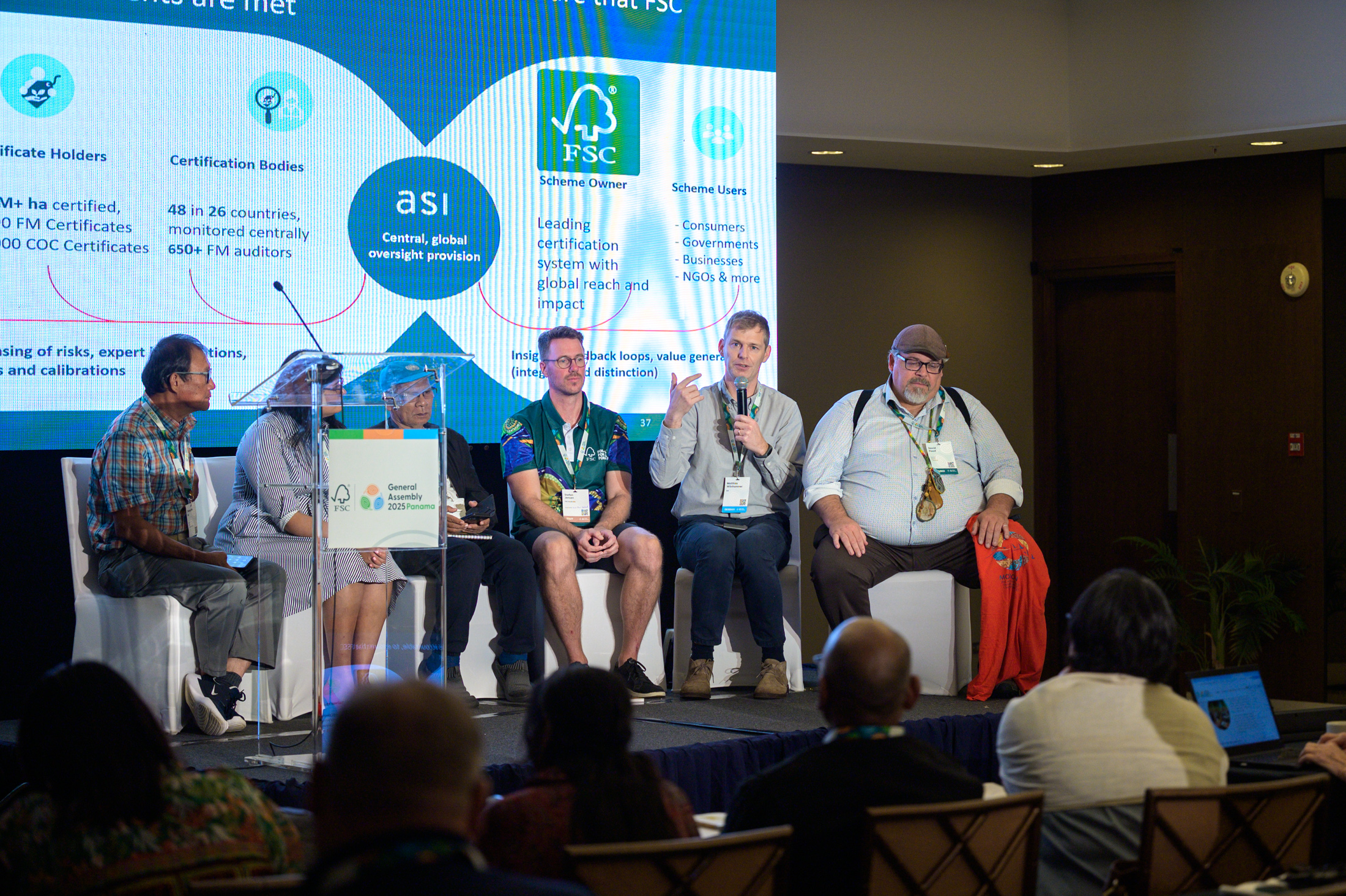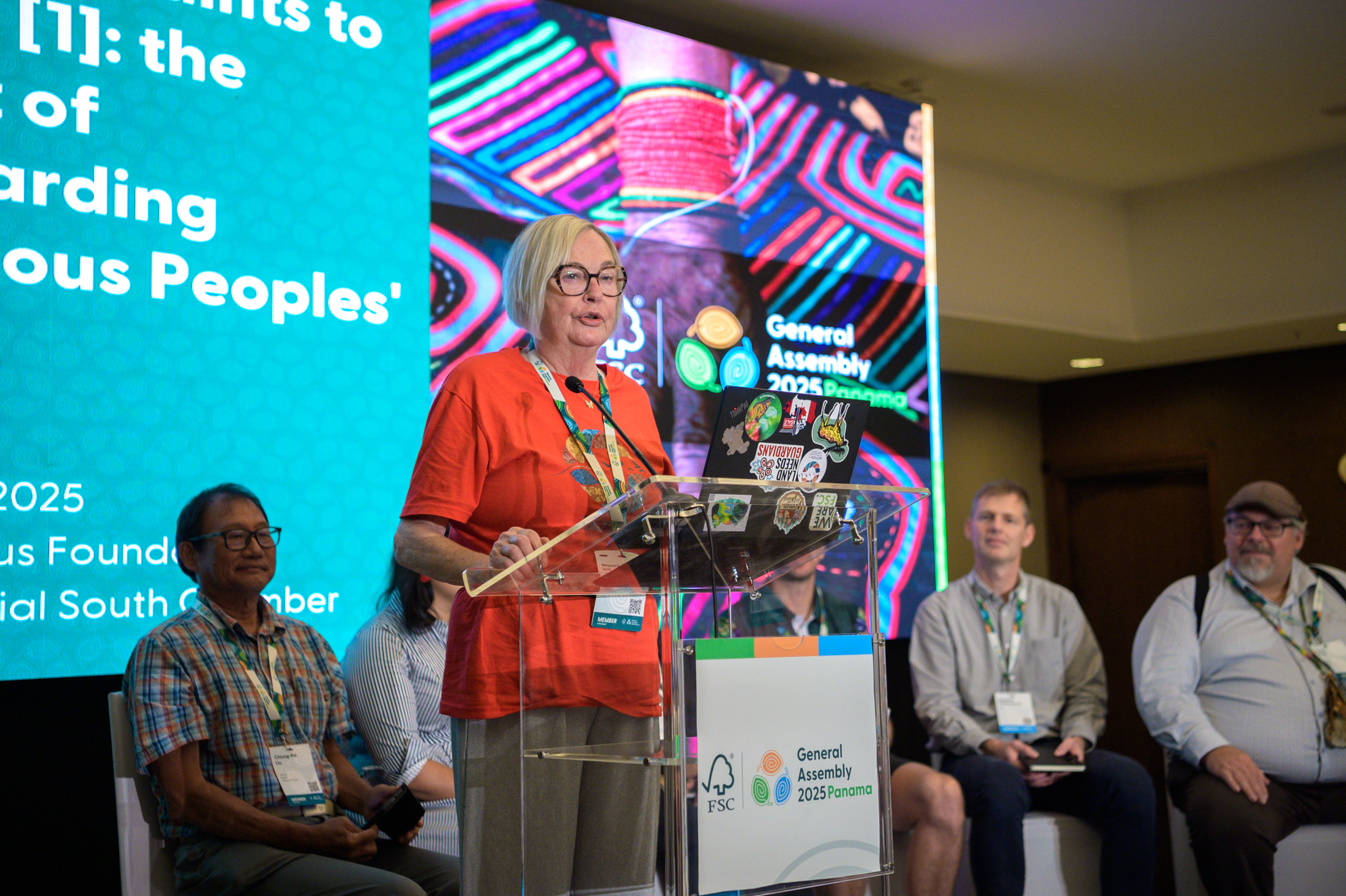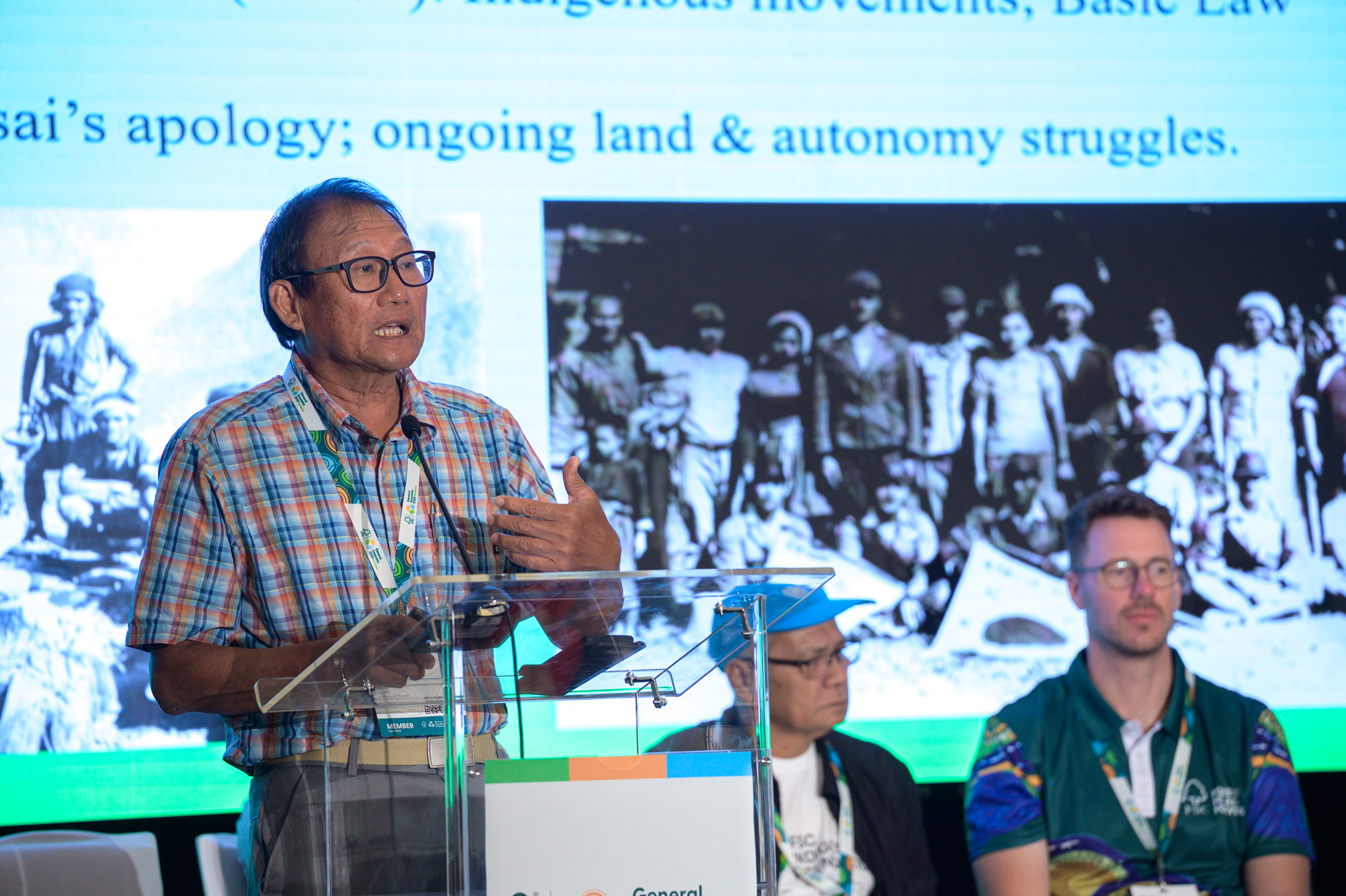
The side meeting 'From Complaints to Change: The Present of Safeguarding Indigenous Peoples’ Rights brought together Indigenous leaders, members, FSC officials, and partners to reflect on lived experience and the use of FSC’s complaint mechanisms. They shared lessons from difficult cases and looked into how FSC can build stronger trust through dialogue and cooperation.
Rather than debating the standards themselves, the panel explored how to make them work better in practice and shared candid stories of lived experiences. Here are some of the highlights.

A Call for Collaboration
Peggy Smith, from FSC’s Indigenous Foundation Council, opened the discussion with an appeal for honesty and shared responsibility.
“I know that these might be some very difficult situations that we’re talking about,” she said, reminding participants that FSC’s strength lies in translating its written commitments into real-world outcomes.
“We’ve got fantastic standards,” she said. “But the issue is always implementation - particularly where great standards are not being followed or implemented as they should be.”
Her words framed the session as a collective search for practical improvement rather than a critique of the past.

Experiences from the Ground
From Taiwan, Professor Chiung-Hsi (Jesse) Liu described how FSC certification has grown rapidly - with nearly 70 percent of the country’s national forests now certified - while raising new questions about participation.
“About 70 percent of our national forest have been certified and they are almost all Indigenous territory,” he said. But he also raised concern about implementation of FPIC (Free, Prior and Informed Consent) and highlighted the right for indigenous peoples to say “no”. His key proposals to move forward were to recognize tribal juridical persons, build Indigenous governance capacity, and reform FSC auditing standards to ensure that consent is real and verifiable.
Nicholas Mujah Ason, Secretary General of the Sarawak Dayak Iban Association in Malaysia, reflected on how engagement with FSC has evolved from confrontation to partnership.
“FSC was once seen as just another certification. It displaced Indigenous people from their land. But through the Permanent Indigenous Peoples Committee, our very first enemy became our friend - because they talked to us and listened to us.”
From Canada, David Flood of Wahkohtowin Development described a case in which eight First Nations withheld consent for a forest management plan that was nonetheless certified.
“All of the eight First Nations wrote a letter saying, we do not consent to the implementation of this plan - yet that forest got certified.”
Despite the challenge, he reaffirmed commitment to improvement within FSC.
“I’ll stand behind FSC. I’m proud of this system and I’m proud of what the opportunities are.”
System Improvements in Motion
Representing FSC International, Lorena Martínez Hernández outlined ongoing work to strengthen how the organization manages complex cases involving Indigenous rights, including those affecting Indigenous Peoples in voluntary isolation (IPVI). According to her, more than 200 indigenous peoples are in voluntary isolation groups globally. ‘
She also noted that a motion has been submitted at the General Assembly to revise the FSC Principles & Criteria – specifically criterion 3.1 – to provide clearer safeguards and guidance for the protection of IPVIs.
“They have chosen to break contact with national societies, often as a consequence of - or response - to traumatic experiences.” She said, and continued to give concrete examples of a recent case from the Mashco Piro of Peru, where the conclusion was that “The FSC system had not been sufficient or adequate to address the situation” emphasising the importance of the developed advice note, ordered by the International Board of Directors of FSC on the topic of voluntary isolation.
These advice notes include No-Go zones and buffer zones. No contact means no contact.” Lorena concludes.
From the assurance perspective, Matthias Wilnhammer of Assurance Services International (ASI) highlighted the need for stronger field competence.
“Companies often do not identify the presence of Indigenous people, that’s where problems start,” he said. “There is a need for strong competence management, appropriate knowledge, skills, attitudes, and impartiality by the auditors.”
Stefan Jensen from FSC Australia and New Zealand added that maintaining open communication remains the simplest and most effective safeguard.
“Most conflicts come after collapsed dialogue,” he said. “If you want to prevent conflicts, you need to work on the dialogue piece.”
From Complaint to Collaboration
In closing, Marcus Colchester from the Forest Peoples Programme and the FSC International Board of Directors summarized the discussion: strong standards exist, but lasting trust depends on practice.
“The standard is good. It creates space to address violations of Indigenous Peoples’ rights. But we need better implementation - improved training, more independent auditors, and culturally appropriate engagement if FSC is to live up to its promise.”
Colchester emphasized that complaints are not system failures but opportunities to learn, echoing the Indigenous principle that progress comes through dialogue and accountability.
As Professor Liu concluded: “We have much work to do. But FSC gives us a way forward. We can be the example in Asia.”
Across the room, there was a shared understanding that protecting Indigenous rights within FSC is not just about resolving disputes. It is about ensuring that every process, from certification to auditing to grievance handling, embodies respect, partnership, and continual learning.

